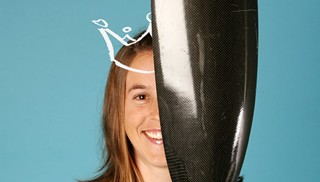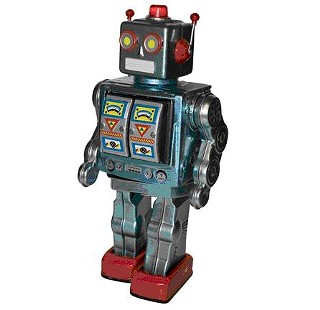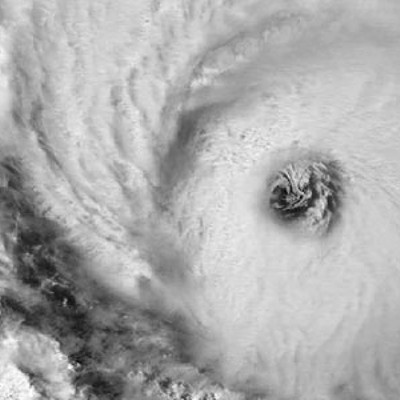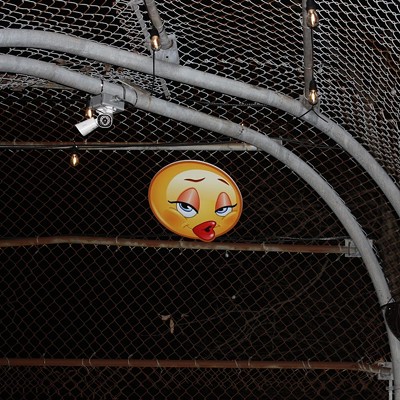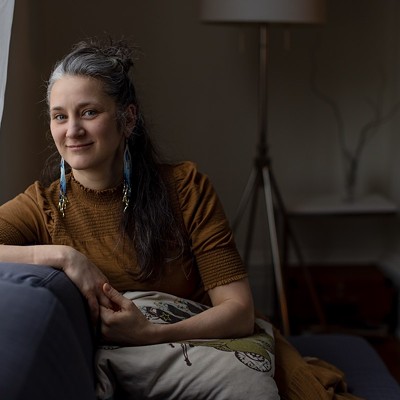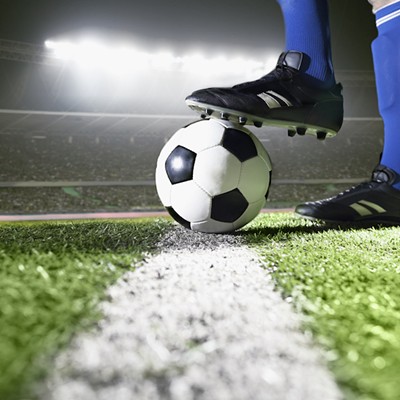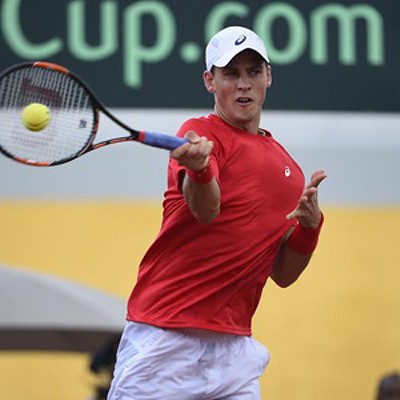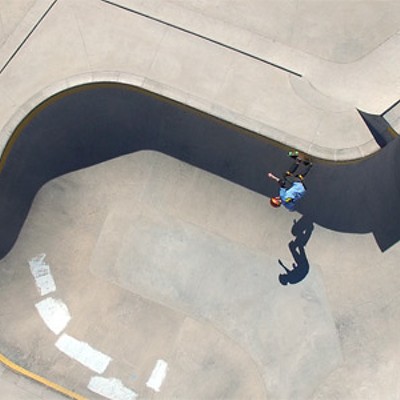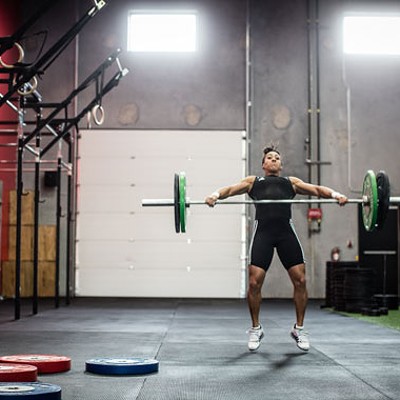She has a dry, firm handshake. Her smile is brilliant, white-toothed, her skin tanned from all the outdoor training. On her left wrist is an oversized sports watch and dangling beneath her throat, a gold medallion of a kayaker, a gift from her parents after she won her first gold medal.
The evidence of an extraordinary self-discipline is clear in her eyes. It's as obvious as the muscular physique that shows through her plain black sweatshirt. A reserve of iron lies beneath the demure exterior of two-time world champion and Canadian Olympian Karen Furneaux.
That's not to say that she's not personable and forthcoming when talking about her work. But there's a coiled quality, someone for whom life is at its most real when in competition, and one suspects that any time she's not preparing for that competition, with less than a year before the Olympics in Beijing, is just a distraction.
And then she goes and upends that presumption by speaking of being grounded when away from her athletic pursuits. She lives and trains where she grew up, in Waverley, near her family—two younger sisters and her parents. She's married and has a golden retriever named Promise.
"You can't be in touch with yourself unless you are able to feel those things," she says. "I rely on my time away from training to re-centre; to bring the focus back down to normal life. It's good to have family and friends around."
Furneaux has been a member of the Cheema Aquatic Club on Lake Thomas since she was three, spending her life in or on the water. She competes in "flatwater," which is the straight-ahead kayak race across a lake, as opposed to the slalom, which takes place on a river, through gates.
"In '93 the Canada Games opportunity came up and I wanted to make that team, and I actually surpassed that goal and went to the Junior Worlds, instead. There is where I realized this is what I was meant to be doing." She was 16. "It was the first time I was racing for Canada. I had the jersey and the red and white. It pretty special."
A member of the national team since '94, Furneaux has been Nova Scotia athlete of the year five times. She earned a silver medal at the K4 (four-person kayak) 200m race at the World Championships at Lake Banook in 1997, the gold at the World Championships in Hungary a year later in K2 (two person) 200m, two gold medals at the 1999 Pan Am Games in Winnipeg, in K1 (solo) 500m and K4 500m. Her second world championships gold medal came in 2001 in Poland, in the K1 200m.
Furneaux competed in the Sydney Olympics and at the Athens Olympics, in 2000 and 2004, without medalling. But that's neither here nor there: Beijing is in her sights, she is training for the Olympic standard K1 and K4 500m events. Based on her 2006 results, she is third in the world, though in 2007, injuries to her shoulder and back kept her from competing towards limited Olympic slots. It means that trials in Atlanta in May and then the Hemisphere Qualifiers that follow in Montreal are her last chance to get on the Canadian team going to China.
The injury setback has planted no seeds of doubt. There isn't even a question of it. Furneaux is healthy and feeling good. "Being a full-time athlete, you have a lot of things to deal with, one of those things is injuries... strains, or something minor that get a bit inflamed," she says, matter-of-factly.
Her training regimen takes five to six hours of her day, three separate training sessions, including weights, overseen by her coach, Csom Latorovszki, and trainer, Darren Steeves, as well as a team of therapists on call, including a massage therapist and an osteopath, in order for her to stay fit. "They help me to heal and they help design things so I don't re-injure."
Furneaux's diet is protein-heavy and fat-light, though she doesn't focus on what she eats obsessively, any more than any other person who cares about their health. She just makes sure she has the fuel to reach the targets she sets for training, within a particular session and beyond.
"I have big goals. I know where I'm supposed to be at certain times of the year, and everything that I do on the water—in the weight room as well. Expectations of what I should be doing—I know if I am reaching those goals. It's pretty cut and dry.
"A lot it comes down to mental strength. How to control yourself and be able to relax in a pressure situation. I'm in situations where I have to perform each day. That prepares me mentally to be able to relax on race day."
And what of that day of the race? How does she feel and deal with those kinds of pressures in order to perform at her peak?
"The whole adrenalin thing—I get excited to race for sure, but you don't want to blow that out of proportion. You want to harness that energy and remain calm and be able to execute your race.
"Competitive simulations are important, from both a physical preparation and mental preparation standpoint."
Maintaining a life as a full-time amateur athlete takes more than talent and commitment to the physical life—you need to be able to promote yourself as a business entity, too.
For Furneaux, that came with corporate sponsorships that she sought out and secured herself. That led to a sideline in motivational speaking, branching out to workshops and conferences for various companies. "I speak mostly from my experiences in sport and what I've learned...teamwork, goal-setting, that sort of thing. I can tailor it to the company's needs—if they're running a health and wellness , I can speak to that."
In the midst of all the training, being away from home for five months a year to attend training camps and to compete around the world, she still found the time to complete a masters in kinesiology with honours (sports psychology) from Dalhousie.
She gives her husband, Jeremy Koenig, credit for a great deal of support. He is currently completing his PhD in biochemistry at Dal. He runs track competitively, so is sensitive to the demands of someone who is dedicated to sport.
"I think I'm very lucky that I've found a partner that does understand and respects me in what I'm doing and I support him in what he's doing," says Furneaux. "It's hard sometimes as I spend a lot of time away from home...as does he with his studies. It's a work in progress."
The Olympics are a whole different experience from the World Championship of almost any sport in competition. "There's more people, more media, more time that we go there for, more drama," says Furneaux. She says it's past the point where any of that is a distraction. "I've been to two Olympics and I know the game now. You have to try and make it like every other race—obviously you want your best race to be at the Olympics."
We've all heard the regular reports that the air quality in Beijing is something akin to grey atmospheric soup. Furneaux isn't concerned. "I'm not even thinking about it. It's probably blown out of proportion. I've paddled in pretty polluted places and humid places before and I've done very well. I'm excited to see China."
The kind of pressure one might feel, the weight of your own dreams, joined with those of your family, friends, your country, are a weight that might make anyone's shoulders give way, even ones as broad and powerful as those belonging to Karen Furneaux.
"It's not pressure, it's expectation," she says. "I don't get stressed if I'm not achieving at exactly the speed I want to be. That's kind of wasted energy. I don't think stress is a bad thing. It makes us improve and think of better solutions."
Spoken like a competitor, the iron right there beneath her surface, calm as a lake.
Carsten Knox is Special Issues editor at The Coast

